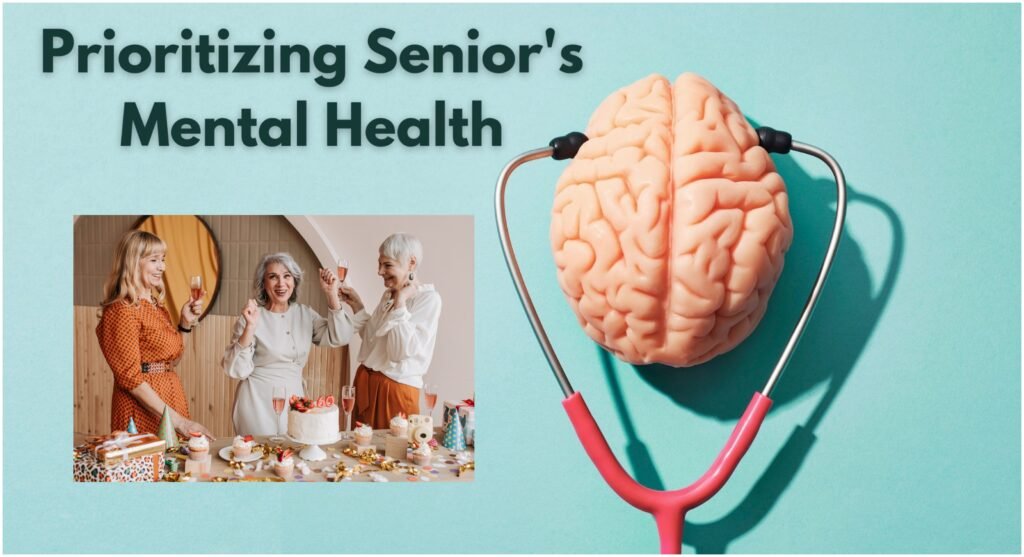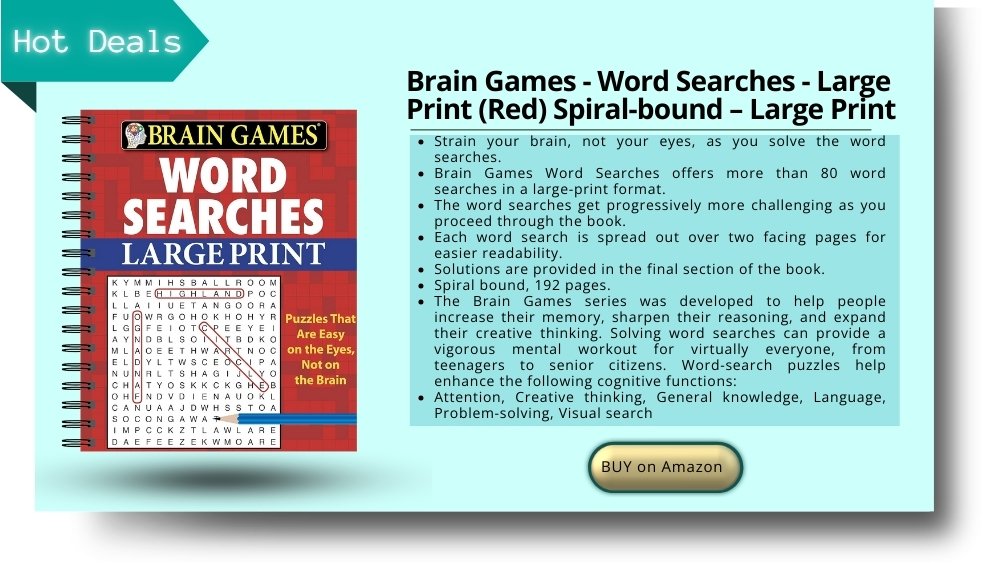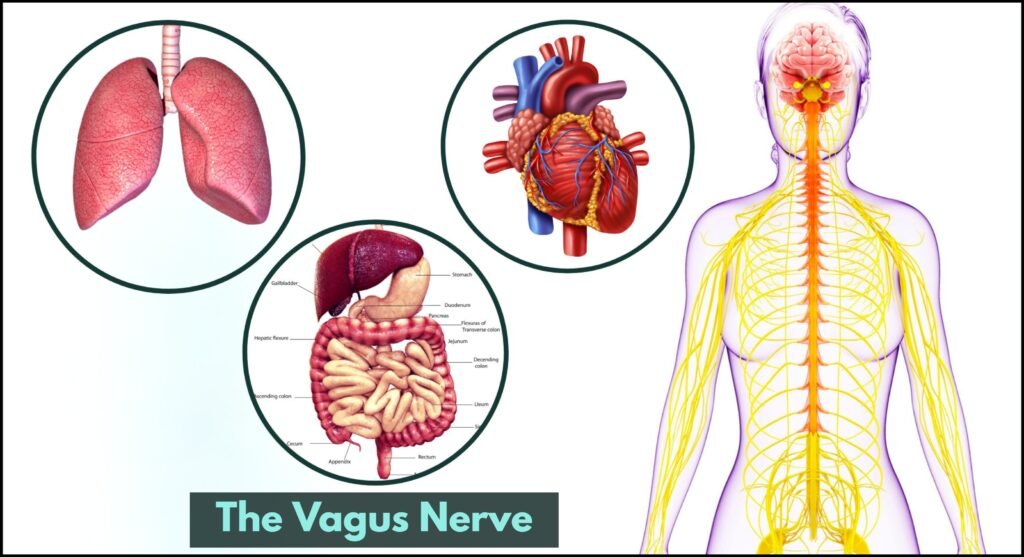Importance of Mental Health in Aging: 6 Solid Strategies

Last Updated on June 30, 2025 by George
Your mental wellness becomes even more precious as you enter your retirement years – and the good news is, you have more control over it than you might think. While approximately 14% of adults aged 60 and over live with a mental disorder, research shows that proactive steps can significantly improve your cognitive function, emotional well-being, and overall quality of life.
Think of your brain as a muscle that thrives on activity and care. Just as you nurture your physical health, your mental wellness deserves the same attention and investment. The strategies we’ll explore aren’t complicated medical interventions – they’re practical, enjoyable activities that can easily become part of your daily routine.
In this comprehensive guide, you’ll discover six evidence-based strategies that can transform your mental wellness journey. We’ll explore how regular physical activity can boost your mood and sharpen your thinking, why social connections are your secret weapon against isolation, and how simple lifestyle choices create a foundation for lasting mental vitality.
You’ll also learn about the unique challenges that come with this life stage – from navigating retirement transitions to coping with loss – and discover practical tools to address them with resilience and grace. Whether you’re looking to maintain your current mental sharpness or seeking ways to bounce back from recent challenges, these strategies offer hope and actionable solutions.
Ready to invest in your most valuable asset – your mind? Let’s explore how you can thrive mentally and emotionally in the years ahead.
Everything You Need to Know About Mental Health and Aging
Entering your golden years naturally brings various physical and emotional transitions. Recognizing and addressing these changes proactively helps maintain optimal mental wellness throughout your aging journey.
Prefer to listen rather than read?
Physical and Emotional Challenges
Entering your golden years naturally brings various physical and emotional transitions. Recognizing and addressing these changes proactively helps maintain optimal mental wellness throughout your aging journey.
Physical Health Decline
As your body changes over time, you might notice activities that once felt effortless now require more effort or adaptation. Climbing stairs, reaching for items on high shelves, or taking long walks might present new challenges. These changes can sometimes feel frustrating, but they’re a normal part of life’s progression.
The key lies in adapting your approach rather than accepting limitations. When your body signals it’s time to modify activities, this presents an opportunity to discover new ways of staying active and engaged.
Bereavement
One of the most significant emotional challenges in later life involves experiencing the loss of spouses, siblings, or close friends. These profound losses naturally bring grief, sadness, and sometimes loneliness. The pain of losing loved ones can also bring reminders of your own mortality, which can feel overwhelming.
Grief is a natural, healthy response to loss. While the pain may never completely disappear, learning healthy ways to process and honor these feelings becomes an important skill for emotional wellness.

Changes in Social Roles
Leaving a decades-long career represents a major life transition that affects more than just your daily schedule. Your professional identity, social interactions, and sense of purpose may all shift significantly. This transition can initially feel disorienting as you navigate questions about your new role and identity.
However, retirement also opens doors to new possibilities, relationships, and pursuits that may have been impossible during your working years.
Advantages of Prioritizing Mental Health in Aging
Investing in your mental health during your retirement years offers remarkable returns that extend far beyond emotional well-being. Let’s explore the compelling reasons to make mental wellness a priority.
Let’s go over the different reasons why you should put as much importance to mental health in aging as your retirement fund.
Improved Cognitive Abilities
Engaging in diverse mental activities helps maintain cognitive function and may prevent cognitive decline. Research analyzing 52 studies with 1,503 participants shows that physical exercise enhances cognitive task performance and consistently increases task-related brain activation.

Puzzles
Challenging your mind with puzzles – whether Sunday crosswords, sudoku, or even Rubik’s cubes – provides excellent cognitive exercise. These activities demand concentration, pattern recognition, and problem-solving skills that keep your mind sharp and engaged.
Regular puzzle-solving strengthens your ability to focus, remember details, and tackle complex problems in daily life.
Reading
Reading is another valuable mental exercise that promotes cognitive abilities in older adults. Reading stimulates the brain by enhancing vocabulary, comprehension skills, and logical reasoning. It exposes individuals to new ideas, information, and perspectives, keeping the mind active and receptive.Reading remains one of the most effective ways to exercise your brain. Whether you prefer novels, biographies, newspapers, or magazines, reading enhances vocabulary, comprehension skills, and logical reasoning. It exposes you to new ideas and perspectives while keeping your mind active and curious.
The mental workout of following plotlines, understanding complex concepts, or learning new information provides excellent cognitive stimulation.Reading is another valuable mental exercise that promotes cognitive abilities in older adults. Reading stimulates the brain by enhancing vocabulary, comprehension skills, and logical reasoning. It exposes individuals to new ideas, information, and perspectives, keeping the mind active and receptive.

Whether it’s novels, non-fiction books, newspapers, or magazines, reading provides a cognitive workout that can contribute to improved cognitive function and mental agility.
Learning Something New
Embracing new hobbies or skills creates powerful benefits for brain health. Whether you’re learning to play an instrument, trying watercolor painting, or starting a vegetable garden, novel activities stimulate neuroplasticity – your brain’s remarkable ability to form new connections and pathways.
This process of learning and adapting strengthens cognitive reserve, helping your brain maintain function and tackle new challenges effectively.
Engaging in these mental exercises not only keeps your cognitive abilities sharp but also builds what’s known as cognitive reserve. Cognitive reserve helps your brain cope with age-related changes and tackle new cognitive challenges effectively.
Reduced Risk of Mental Disorders
When seniors prioritize their mental health in aging, they significantly reduce their susceptibility to mental disorders like depression, anxiety, and dementia.
Engaging in regular social interactions, keeping mentally stimulated, and seeking professional support. When necessary all play vital roles in minimizing the risk of developing these conditions. By prioritizing mental well-being, aging adults can lead healthier and more fulfilling lives.
Improved Emotional Well-being
Emotional well-being is pivotal for overall happiness and contentment. Taking care of mental health empowers aging adults to cope with life’s challenges, manage stress, and maintain a positive outlook. Consequently, this enhances their emotional well-being and resilience.
Proven Strategies for Mental Wellness
Embrace Regular Physical Activity
Physical activity contributes to prevention and management of noncommunicable diseases and reduces symptoms of depression and anxiety, enhances brain health, and can improve overall well-being. Simple activities like walking, swimming, or gentle yoga benefit both body and mind.
The Science Behind Exercise and Mental Health
When you engage in physical activity, your body releases endorphins – natural mood elevators often called “feel-good” hormones. These chemicals help reduce stress, boost mood, and create a sense of well-being. Exercise also increases blood flow to the brain, promoting the growth of new neurons and strengthening neural connections.
Practical Exercise Options
Choose activities that feel enjoyable rather than burdensome. A daily 20-minute walk, water aerobics class, or gentle stretching routine can provide significant benefits. The key is consistency rather than intensity.
Sleep Quality Improvements
Regular physical activity helps regulate your sleep-wake cycle, promoting deeper, more restorative sleep. Better sleep quality directly impacts mood, cognitive function, and overall mental wellness.

Foster Meaningful Social Connections
Social engagement plays a vital role in mental wellness, combating loneliness and fostering a sense of belonging and purpose.
Join Interest-Based Groups
Participating in clubs aligned with your interests – book clubs, gardening groups, or hobby circles – creates opportunities to connect with like-minded individuals while pursuing activities you enjoy.
Community Involvement
Attending local events, festivals, or cultural gatherings provides chances to interact with diverse people and maintain community connections. These activities offer learning opportunities and help broaden perspectives.
Family and Friend Relationships
Regular communication with loved ones through phone calls, video chats, or in-person visits strengthens important relationships. These connections provide emotional support and contribute to mental wellness.
Volunteer Opportunities
Volunteering allows you to contribute to your community while connecting with others who share similar values. This sense of purpose and social connection significantly benefits mental health.

Support Healthy Lifestyle Choices
Your lifestyle choices create the foundation for optimal mental wellness.
Nutritious Eating Patterns
A balanced diet rich in fruits, vegetables, whole grains, lean proteins, and healthy fats supports brain function and mental well-being. Proper hydration also plays a crucial role in maintaining cognitive function.
Quality Sleep Habits
Establishing a regular sleep routine and creating a calming bedtime environment supports mental health. Most adults benefit from 7-9 hours of quality sleep each night.
Mindful Substance Use
Limiting alcohol consumption and avoiding tobacco supports both physical and mental health. Excessive alcohol use can negatively impact mood and cognitive function.

Access Mental Health Support
Professional support provides valuable resources for maintaining mental wellness.
Local Resources
Many communities offer support groups, counseling services, and therapy options specifically designed for mature adults. These resources provide safe spaces to discuss concerns and develop coping strategies.
Regular Healthcare Check-ins
Regular appointments with healthcare providers help identify and address mental health concerns early. Primary care physicians can provide screenings, referrals, and ongoing monitoring.
Crisis Resources
Knowing about local crisis hotlines, mental health clinics, and emergency resources ensures you can access help when needed.
Volunteering
Older adults can improve their mental well-being by participating in group activities, volunteering, or team sports. These activities foster camaraderie, collaboration, and support, while also promoting physical health and a sense of belonging. Volunteering allows them to contribute to their community and connect with like-minded individuals.

Develop Self-Care Practices
Self-care involves recognizing your needs and taking proactive steps to address them.
Stress Management Techniques
Learning relaxation techniques, deep breathing exercises, or meditation can help manage daily stress and promote emotional balance.
Personal Boundaries
Setting healthy boundaries with commitments, relationships, and activities helps prevent overwhelm and maintains mental wellness.
Professional Support When Needed
Recognizing when to seek professional help demonstrates wisdom and self-awareness. Mental health professionals can provide specialized support for complex concerns.

Encouraging them to moderate their alcohol consumption and providing information about the recommended limits set by health authorities can help prevent alcohol-related mental health issues and promote overall well-being.
Abstaining From Smoking and Substance Abuse
In addition to promoting healthy habits, it is vital to emphasize the importance of abstaining from smoking and substance abuse. Smoking and the use of illicit drugs or excessive alcohol can have severe negative effects on cognitive function and mental health in aging.
Educating aging adults about the risks associated with these substances and providing resources and support for smoking cessation or substance abuse treatment can significantly contribute to maintaining their mental well-being.

Provide Access to Mental Health Support
Ensuring that elderly individuals have access to comprehensive mental health in aging support services is of utmost importance. It is crucial to prioritize their well-being by providing them with information and resources that can address their mental health needs effectively.
Providing Details on Nearby Support Groups, Counselling, and Therapy Choices
One way to support aging adults is by offering information about local support groups, counselling services, and therapy options. These resources can provide a safe and supportive environment where they can discuss their feelings, concerns, and experiences with individuals facing similar challenges.
Support groups offer a sense of belonging and understanding, fostering connections and reducing feelings of isolation. Counselling services and therapy options, whether individual or group sessions, can provide professional guidance and help develop coping strategies to manage mental health concerns.
Regular Check-Ins With Healthcare Professionals
Regular check-ins with healthcare professionals are crucial for identifying and addressing issues in mental health in aging adults. Primary care physicians or geriatric specialists can conduct routine screenings and assessments to detect signs of distress or cognitive decline and provide appropriate interventions, referrals, and treatment monitoring. Consistent follow-up allows for early intervention, ensuring effective and prompt mental health care.

Navigate Life Transitions Thoughtfully
Major life changes require intentional support and adaptation strategies.
Processing Change
Acknowledging the emotions that come with major transitions – whether retirement, relocation, or loss – allows for healthy processing and adaptation.
Seeking Support
Counseling, support groups, or peer connections can provide valuable guidance during significant life changes. Sharing experiences with others facing similar transitions offers comfort and practical advice.
Creating New Purpose
Retirement opens opportunities to explore new interests, volunteer activities, or creative pursuits that provide meaning and satisfaction.

By implementing these strategies, we can promote mental health in aging adults and enhance their overall well-being. It is essential to create an environment that values and supports mental health in aging, enabling aging adults to lead fulfilling and meaningful lives.
Conclusion
Giving priority to mental health among aging adults is paramount. By acknowledging the connection between mental well-being and overall quality of life, we can assist aging individuals in leading fulfilling lives while preserving their independence.
Through strategies such as regular physical activity, social engagement, healthy lifestyle choices, and access to mental health support, we can promote positive mental health outcomes and enhance the well-being of aging adults.
Disclaimer
The content provided on MySeniors.World is for informational purposes only and is not intended as either financial or medical advice. Always consult a qualified professional before making any investment or health-related decisions.
Posts may contain affiliate links, meaning we earn a commission – at no additional cost to you, if you click through and make a purchase. Your support helps us continue providing valuable content.
FAQ: Mental Health in Aging
- How much exercise do I need for mental health benefits?
- Exercise promotes neurogenesis (development of new neurons) and improves cognitive functioning via cellular mechanisms. Even 20-30 minutes of moderate activity most days of the week can provide significant mental health benefits. The key is consistency rather than intensity.
- What if I feel too depressed or anxious to start these activities?
- Start with the smallest possible step – perhaps a 5-minute walk or one phone call to a friend. Professional support can help you develop a manageable plan. Don’t hesitate to reach out to a healthcare provider or counselor for guidance.
- Are these strategies effective if I’m already experiencing memory concerns?
- Yes, these strategies can be beneficial even with existing cognitive concerns. However, work with your healthcare provider to develop an appropriate plan that considers your specific situation and capabilities.
- How do I find social activities if I’m naturally introverted?
- Look for smaller group activities or one-on-one opportunities that feel more comfortable. Library programs, small hobby groups, or volunteer activities that match your interests can provide gentle social engagement.
- What should I do if I’m grieving the loss of a spouse or close friend?
- Grief is a natural process that takes time. Consider joining a grief support group, speaking with a counselor, or connecting with others who have experienced similar losses. Allow yourself to feel the emotions while also engaging in activities that provide comfort and connection.
REFERENCES
- World Health Organization. (2023, October 20). Mental health of older adults. Retrieved from https://www.who.int/news-room/fact-sheets/detail/mental-health-of-older-adults
- Brookings Institution. (2024, July 2). The mental health landscape of older adults in the US. Retrieved from https://www.brookings.edu/articles/the-mental-health-landscape-of-older-adults-in-the-us/
- Frontiers in Public Health. (2024, June 19). Physical exercise and mental health among older adults: the mediating role of social competence. Retrieved from https://www.frontiersin.org/journals/public-health/articles/10.3389/fpubh.2024.1385166/full
- JAMA Network Open. (2024, February 1). Physical Activity and Cognitive Decline Among Older Adults: A Systematic Review and Meta-Analysis. Retrieved from https://jamanetwork.com/journals/jamanetworkopen/fullarticle/2814503
- American College of Sports Medicine. (2025, February 12). Cognitive Benefits of Physical Activity for Older Adults. Retrieved from https://acsm.org/cognitive-benefits-physical-activity-older-adults/
- World Health Organization. (2024, June 26). Physical activity. Retrieved from https://www.who.int/news-room/fact-sheets/detail/physical-activity
- ScienceDirect. (2024). Physical exercise, cognition, and brain health in aging. Retrieved from https://www.sciencedirect.com/science/article/abs/pii/S0166223624000626





